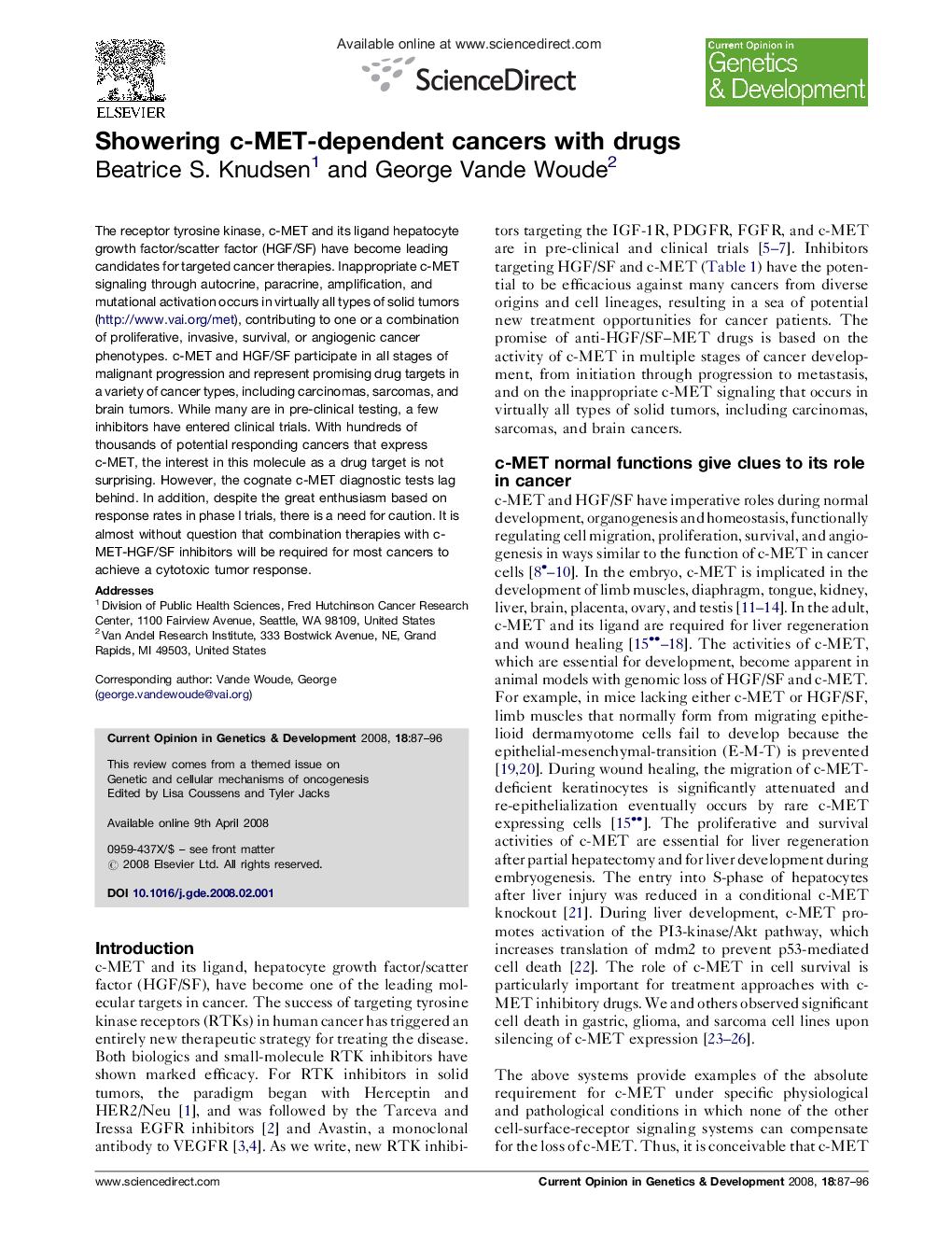| Article ID | Journal | Published Year | Pages | File Type |
|---|---|---|---|---|
| 2785135 | Current Opinion in Genetics & Development | 2008 | 10 Pages |
The receptor tyrosine kinase, c-MET and its ligand hepatocyte growth factor/scatter factor (HGF/SF) have become leading candidates for targeted cancer therapies. Inappropriate c-MET signaling through autocrine, paracrine, amplification, and mutational activation occurs in virtually all types of solid tumors (http://www.vai.org/met), contributing to one or a combination of proliferative, invasive, survival, or angiogenic cancer phenotypes. c-MET and HGF/SF participate in all stages of malignant progression and represent promising drug targets in a variety of cancer types, including carcinomas, sarcomas, and brain tumors. While many are in pre-clinical testing, a few inhibitors have entered clinical trials. With hundreds of thousands of potential responding cancers that express c-MET, the interest in this molecule as a drug target is not surprising. However, the cognate c-MET diagnostic tests lag behind. In addition, despite the great enthusiasm based on response rates in phase I trials, there is a need for caution. It is almost without question that combination therapies with c-MET-HGF/SF inhibitors will be required for most cancers to achieve a cytotoxic tumor response.
